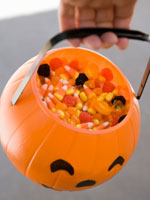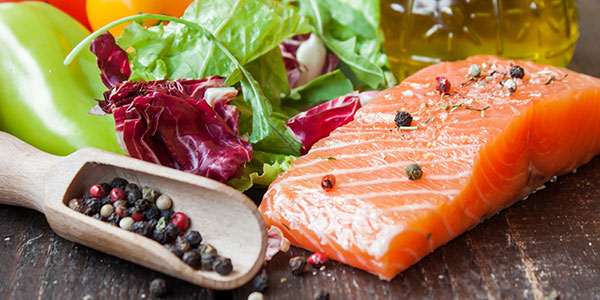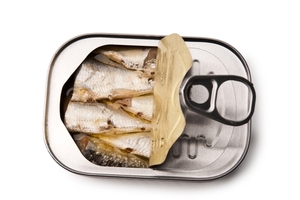What it Takes to Lose Weight
What does it take to lose weight?
To lose weight, you have to eat fewer calories than your body uses for energy. Calories are found in foods that you eat and show the amount of energy in those foods. Some foods have more calories than others. For example, foods that are high in fat and sugar are also high in calories. If you eat more calories than your body uses for energy, the extra calories will be stored as extra body fat.
A pound of fat is about 3,500 calories. To lose 1 pound of fat in a week, you have to eat 3,500 fewer calories (that is 500 fewer calories a day), or you have to "burn off" an extra 3,500 calories. You can burn off calories by exercising or just by being more active. Talk to your family doctor before you begin any type of exercise program. Your doctor can help you determine what kind of exercise program is right for you.
The best way to lose weight and keep it off is to eat fewer calories and be active. If you cut 250 calories from your diet each day and exercise enough to burn off 250 calories, that adds up to 500 fewer calories in one day. If you do this for 7 days, you can lose 1 pound of fat in a week.
Many experts believe you should not try to lose more than 2 pounds per week. Losing more than 2 pounds in a week usually means that you are losing water weight and lean muscle mass instead of losing excess fat. If you do this, you will have less energy and you will most likely gain the weight back.
How often should I eat?
Most people can eat 3 regular meals and 1 snack every day. The 3 meals should be about the same size and should be low in fat. Some people benefit more if they eat 5 to 6 smaller meals, your body stays satisfied and you are not as hungry throughout the day. Try to make half of your plate fruits and vegetables, eat more whole grains, and eat lean meats instead of processed meats (hot dogs, deli meat, bacon).
Eat breakfast and don't skip meals. While skipping meals may help you lose weight in the beginning, it fails in the long run. Skipping meals may make you feel too hungry later in the day, causing you to overeat at your next meal.
What is so bad about foods high in fat?
Foods high in fat are usually high in calories, which could lead to unwanted weight gain. Consuming too much saturated and trans fats may increase LDL cholesterol ("bad" cholesterol) level, and increase your risk of heart disease. You can decrease your saturated fats by increasing the amount of fruits an vegetables you eat, avoiding fried foods, eating lean meats, and using less butter or margarine. Click here for more information on reading nutrition labels.
It is important to remember that some fats can be beneficial to your overall health. "Good" fat, such as polyunsaturated and monounsaturated fats, are found in fish, nuts, and low- or nonfat dairy products.
What are empty calories?
Some foods are referred to as "empty calories" because they add lots of calories to your diet without providing much nutritional benefit. An example is sugar-sweetened drinks, such as fruit juice, fruit drinks, regular soft drinks, sports drinks, energy drinks, sweetened or flavored milk, and sweetened iced tea. These drinks can add lots of sugar and calories to your diet.
But staying hydrated is important for good health. To reduce the calories and sugar in your diet, drink more water, zero-calorie flavored water, non-fat or reduced-fat milk. Talk with your family doctor or a dietitian if you have questions about your diet or healthy eating for your family.
Can I trust nutrition information I get from newspapers and magazines?
Nutrition tips and diet information from different sources often conflict with each other. You should always check with your doctor first. Also, keep in mind the following advice:
- There is no "magic bullet" when it comes to nutrition. There isn't one single diet that works for every person. You need to find an eating plan that works for you.
- Good nutrition doesn't come in a vitamin supplement. Only take a vitamin with your doctor's recommendation, as your body benefits the most when you eat healthy foods.
- Eating all different kinds of foods is best for your body, so learn to try new foods.
- Fad diets offer short-term changes, but good health comes from long-term effort and commitment.
- Stories from people who have used a diet program or product, especially in commercials and infomercials, are advertisements. These people are usually paid to endorse what the ad is selling. Remember, regained weight or other problems that develop after someone has completed the diet program are never talked about in those ads.
Will diet drugs help?
Although diet drugs may help you lose weight at first, they usually don't help you keep the weight off and may have damaging side effects. Most diet pills have not been tested by the Food and Drug Administration, which means you can't be sure if the drugs are safe. Taking drugs also does not help you learn how to change your eating and exercise habits. Making lasting changes in these habits is the way to lose weight and keep it off.
How to get active
Regular physical activity helps to prevent heart disease, type 2 diabetes, osteoporosis, and other conditions. Activity is important for all adults and children, whether their weight is a problem or not. Small changes in activity level can make a difference over time. Here are a few examples:
- Increase whatever physical activity you are currently doing by adding 10 minutes a day, or increase the intensity from low to moderate. (See the box below for an idea of different activity intensity levels.)
- Limit time spent online, watching TV, and playing video games to less than two hours total per day.
- Take the stairs instead of the elevator.
- Park at the far end of the parking lot and walk to your destination, rather than parking as close as possible. You can also get off the bus one stop earlier and walk the rest of the way.
- Do more household chores (such as dusting, vacuuming, or weeding).
- Walk or run with the dog and/or the kids.
- Use an exercise machine (such as a treadmill or bike) while watching TV.
- Take "active" vacations - go hiking or ride bicycles.
- Walk to do errands (such as to the grocery store or post office) instead of driving.
- Buy a pedometer, which measures how many steps you take each day. Gradually increase your daily number of steps. (Pedometers can be purchased at sporting good stores.)
How active are you?
| Moderate physical activity |
Hard physical activity |
Very hard physical activity |
| Walking a mile in 15-20 minutes (3-4 mph) |
Walking or jogging (12 minutes/mile) |
Jogging (<10 minutes/mile) |
| Treading water | Swimming laps (light effort) | Swimming laps (vigorous effort) |
| Bicycling (10 mph) | Bicycling (12 mph) | Bicycling (> 14 mph) |
| Dancing or tai chi | High impact aerobics | Step aerobics (6- to 8- inch steps) |
| Yard work/gardening | Mowing lawn with a push mower | Digging a ditch |
| Hiking | Playing doubles tennis | Playing singles tennis |
| Vacuuming | Moving furniture | Playing basketball or soccer |
| Playing actively with children | Weight lifting | In-line skating |
Adapted with permission from Blair SN, Dunn AL, Marcus BH, et al. Active living every day: 20 Weeks to lifelong vitality. Champaign, IL: Human Kinetics; 2001.
-
This is the Healthiest Breakfast: Clean Your Body From Toxins and Lose 11 Pounds in a Month
If you consume a healthy breakfast, you will feel numerous benefit
-
High Protein Diet for Weight Loss in Vegetarians
The belief that a healthy diet is one that mandatorily comprises both
-
Get off the Yo-Yo diet
If you’ve learned the hard way that diets don’t work, with a calorie-
-
Home Meal Delivery is Your Solution to Not Having Time to Eat Healthy
Home Meal Delivery is Your Solution to Not Having Time to Eat Healthy
-
9 Simple Morning Rituals to Supercharge Your Metabolism
This article will present you 9 simple ways to supercharge your me
-
Does Sensa Work?
Sensa is a weight loss diet and is quite popular in the US. This weigh
- DON'T MISS
- 20 Diuretic Foods to Detox, Lose Weight, and Lower your Blood Pressure
- A Recipe For Fat Flush Water (It Literally Flushes Fat)
- The Flex diet review
- Dried Figs (anjeer) And Weight Loss?
- The Results of This Drink Shocked The Doctors: It Lowers Cholesterol Effectively And Burns Fat
- Diet Like A Man
- How to Activate Your Fat Burning Hormones Without Exercise
- After This Type Of Body Cleansing, You Will Get Rid Of Back, Neck And Joints Pain!
- Melt Your Body Fat With This Powerful Drink From Only 2 Ingredients
- Lazy Diet: Detox Drink For Melting Fat




